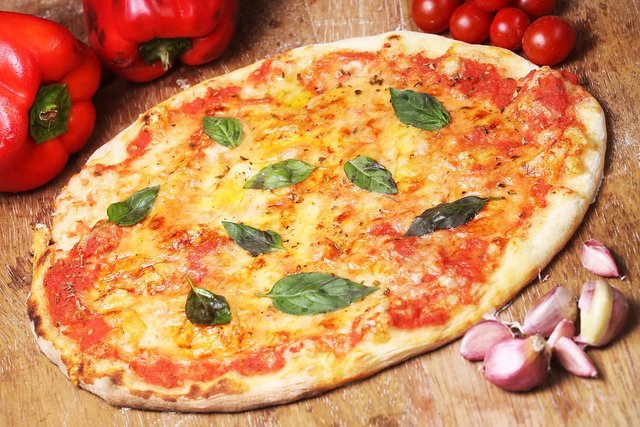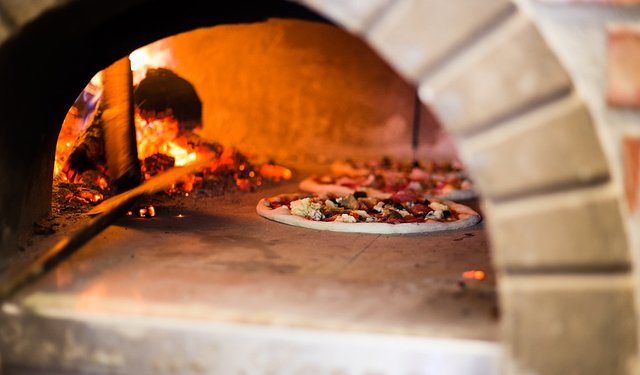
In my culture pizza is a staple food for people of all ages. Pizza parties and Friday night pizza growing up was an occasion to get excited about. Deciding which pizza restaurant to eat at and which toppings get was always an important (and sometimes contentious) issue. As I look back on my fondness for pizza as a child, I discover that a great many people did and still do enjoy this delicious food. From aspects of community and coming to a consensus on deciding the toppings, pizza is an excellent food for better understanding the human condition and how we relate to one another.
Sharing
Pizza is one of the few foods that only the most daring will choose to eat alone. At many restaurants, each person orders his or her own food and there is no real issue about who gets what. While other cultures sometimes promote sharing with numerous smaller dishes, pizza is especially interesting as a wide range of people can share just one pizza. Most pizzas are cut into either 8 or 16 slices, and as a result, between 8 and 16 different people can share a single pizza. I have often found myself counting exactly how many slices I am allowed to have, say for example in a group of 5 people eating 2 normal pizzas I am allowed 3 slices with 1 leftover (16/5=3.20). Life, in very much the same way is also about sharing. The more we take for ourselves, the more others are left shortchanged. Pizza, as a lesson, teaches us that once everyone is taken care of, often there are extra slices leftover. It is one of the few foods that promotes cooperation and doesn’t allow for too much greediness.
Toppings
Oftentimes when ordering pizza there are various dietary likes or dislikes which prevent us from all getting our way. Some people are unable to digest certain foods, while others need to have certain toppings. Ordering a pizza and coming to a consensus agreement on which toppings to eat often teaches us a lot about cooperation, persuasion, and making concessions. While sometimes stepping out of the way to let others decide will make for a more delightful experience, at other times it is important to be assertive so as not to end up with a pizza that you won’t enjoy. Learning to come to an agreement without overstepping your bounds, or failing to express your desires is an important skill to have when it comes to pizza, and life in general. Fortunately, people in the past realized that this determination can be problematic and allowed for different toppings on each half of the pizza. This to me, represents how even though the rules might be set in stone, it is still possible through innovation to make changes that allow for a more equitable experience.
Quality
The best pizzas tend to be far and above tastier than the average chain pizzas. There are many factors at play here, though I would suppose that biggest among them are the quality of ingredients and cooking process. Many large pizza chains sacrifice ingredient quality by overuse of preservatives, freezing, and refrigeration. While any pizza has the potential to be enjoyable, these decisions do factor in when attempting to make an excellent pizza. More delicious pizzas are often cooked in wood burning ovens with pizza artisans and farm fresh ingredients. There really is no limit to how delicious a pizza can taste, though for many of us there is a limit to what pizzas we can afford. This analogy carries into life really well as we can always find enjoyment in those things which are easy to afford and accessible, however if we go out of our way and/or save up for a truly special experience, often times the sacrifices are worth the reward.

In many ways, pizza is a great life teacher and we can learn a lot by engaging with and consuming it. I expect that the overall depth of the pizza experience allows for many more analogies besides these to be drawn. For those of us who enjoyed pizza as a kid, I highly suggest exploring the roots of what it means to appreciate a delicious slice, or even a whole pizza.